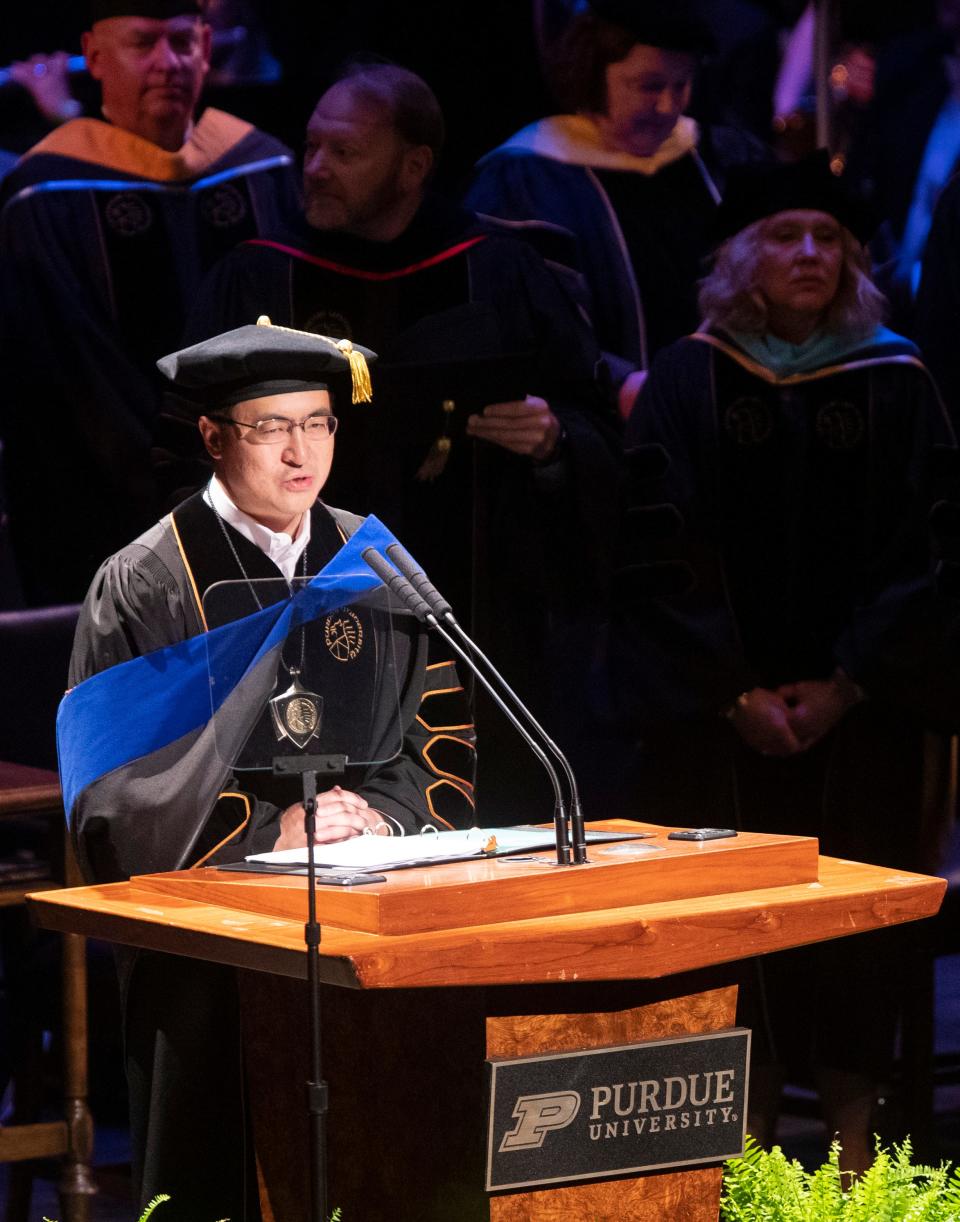Purdue’s newest president uses commencement speech to support AI
- Oops!Something went wrong.Please try again later.
WEST LAFAYETTE, Ind. — Purdue University President Mung Chiang on Friday led the celebration of the first class of students to graduate under his new leadership, opting to discuss the possibilities of artificial intelligence.
For the past decade, the commencement speech fell on the shoulders of former president Mitch Daniels. With Daniels' retirement on the last day of 2022, the responsibility changed to Chiang’s hands.
“There’s nothing more exciting than to see thousands of Boilermakers celebrate a milestone in your lives with those who have supported you,” Chiang told the 2023 class from the College of Agriculture and College of Engineering.
Friday morning's ceremonies were the first of nine commencement events.

“This commencement has a special meaning to me, as my first in a new role serving our university.”
In this new role, Chiang had to face a new challenge. As president of Purdue, not only is he in charge of modeling the nation’s next generation of Boilermakers, he also has the role of sending them off with a commencement speech that could inspire them beyond West Lafayette.
Purdue president embraces benefits of AI
Chiang took the opportunity to discuss the future of artificial intelligence and how it will impact the world.
“For the moment, let’s assume that AI will finally be transformational to every industry and everyone. Changing how we live, changing what we believe in, displacing jobs and disrupting education,” he said.
“After IBM’s Deep Blue beat the world champion, we still play chess. After calculators, children are still taught how to add numbers. Human beings will learn and do things not just as survival skills but also for fun or as a training for our minds.
“That doesn’t mean we don’t adapt.”
Chiang went on to tell his students that they shouldn’t fear the inevitable integration of AI into society because humans have always adapted to the tools of the future.
He spoke on how some academics have considered banning the use of AI in academia, and he explained how that would be a difficult and Herculean task to accomplish.
He said he believed that AI will just be another tool of the future and that academia should learn to incorporate it into its curriculum rather than ban it.
“Students need to learn how to function in an AI-infused workplace upon graduation,” he said.
Instead of running from AI, Chiang said Purdue will try to learn how to incorporate it into curriculum to help cultivate the next generation of workers.
“We would rather have Purdue advance AI research with nuance appreciation of the pitfalls, limitations and unintended consequences in its deployment,” he said.
Chiang wrapped up his speech by telling the room he asked generated AI to write a commencement speech for the president of Purdue University on the topic of AI, after he drafted his own.
After reading what the A.I. had created, he said that “the AI version reads like a B-minus high school essay” and that it was “so toxically generic.”
Between the two drafts, from Chiang and from AI, he explained that there were a few words that overlapped.
“So, here’s from both,” he said. “Congratulations and Boiler Up!”
Noe Padilla is a reporter for the Journal & Courier. Email him at Npadilla@jconline.com and follow him on Twitter at 1NoePadilla
This article originally appeared on Lafayette Journal & Courier: Purdue president uses first commencement speech to support AI

